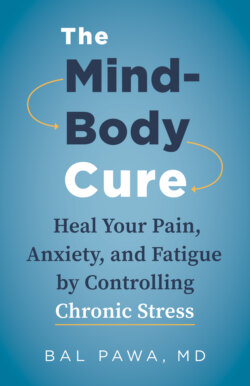Читать книгу The Mind-Body Cure - Bal Pawa - Страница 15
На сайте Литреса книга снята с продажи.
➤ Growth Mindset versus Fixed Mindset
ОглавлениеIn her book Mindset: The New Psychology of Success, researcher Carol Dweck showed that mindset—whether growth or fixed—was a profound determinant of a person’s performance.7 She defined people who believe their success is based on innate ability as having a fixed mindset; that is, they think they are born with a certain amount of intelligence and talent and that’s that. Either they know something or they don’t. Those who believe their success is based on hard work, learning, training, and doggedness, she defined as having a growth mindset. If they don’t succeed at something the first time, they think that hard work and learning will allow them to master it. Many different cultures value diligent work, and we know that working hard (and working smart) is a great way to achieve our goals. Yet we also believe people have innate natural talents that give them an advantage.
For example, we look at people like Albert Einstein or Michael Jordan and see that their natural talents gave them both success and notability. However, their inherent talent was not the only quality they had. Dweck points out that talent alone would not have been enough. Imagine if Einstein had written the theory of relativity and then just kicked back and drunk lemonade! The fact he persisted and continued to create world-changing theories shows he was hungry for knowledge and disciplined enough to continue his research. This made him one of the most revered physicists in history. In the same way, what if Michael Jordan had hooped a few basketballs with precision and then quit just to lie around reveling in his glory? Would we remember him today? Absolutely not. Both men had more than incredible natural talent. They had other qualities in common, such as persistence, curiosity, and grit. They continued to practice and hone their skill and talent. Incredible natural talent combined with a mindset for improvement and effort produced epic results.
We can apply this mindset theory to our health. Believing in our ability to change our life is a key feature of a growth mindset, compared with assuming we possess immutable characteristics with a fixed mindset. In clinical practice, I have witnessed various patterns of mindset when treating patients over the years. I refer to those patients as having a health mindset versus an illness mindset. When we believe inherently that our mindset (software program) is not etched in stone, we can “upgrade” and “update” the version of software that our brain is playing so we get better results. Those results are displayed by the body. The programmer (our conscious mind) is key when it comes to starting this process.
